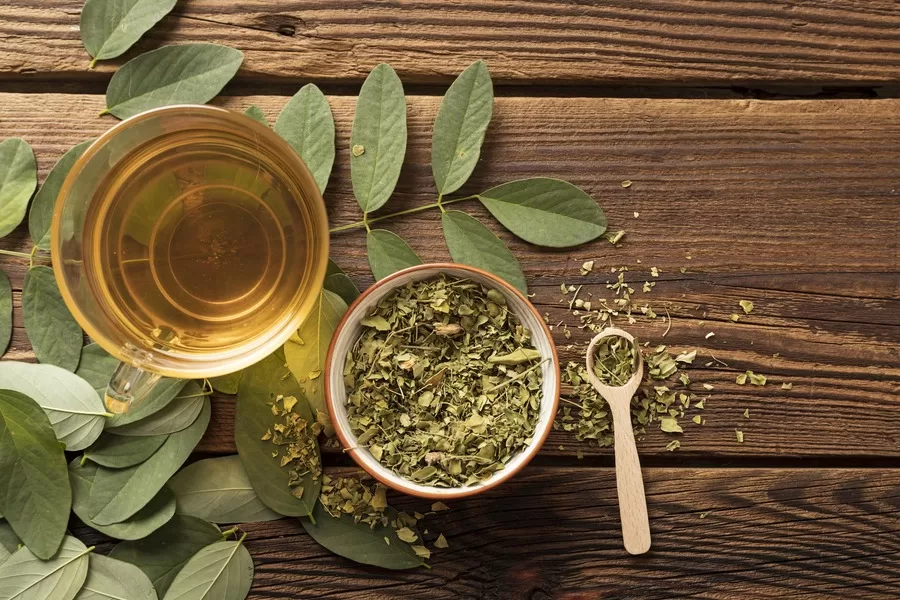
Intrigued by the prospect of integrating a supplement rooted in centuries of tradition and validated by scientific inquiry into your daily routine?
Unravel the myriad benefits this extract offers, from its antioxidant prowess combating oxidative stress to its nuanced role in modulating vital hormonal balances, spotlighting its effects on testosterone.
Green Tea Extract
Delving into the essence of green tea extract reveals its origin from the leaves of the Camellia sinensis plant, a treasure trove of health benefits. This powerful concentrate is crafted to fit various lifestyles and preferences, offered in capsule form for ease, liquid for swift assimilation, and powder to seamlessly blend into daily meals and drinks.
The Power of Antioxidants in Green Tea
The cornerstone of green tea extract’s acclaimed health advantages lies in its rich content of antioxidants, predominantly catechins. These protective compounds shield our cells from the detrimental effects of free radicals, which contribute to chronic diseases and the aging process. Epigallocatechin Gallate (EGCG), the most eminent of these catechins, is celebrated for its extensive therapeutic properties, from aiding weight management to enhancing cardiovascular health, and its intriguing potential to modulate hormones like testosterone.
EGCG
EGCG’s prominence in research highlights its critical role in green tea extract’s health-promoting arsenal. This compound is not only pivotal in fighting oxidative stress but also in influencing the body’s hormonal landscape. The fascination with green tea extract’s impact on hormone levels, including testosterone, is rooted in the ongoing quest for natural modifiers of hormone balance, which may offer improvements in muscle health, fat reduction, and overall energy levels.
For those considering adding green tea extract to their wellness plan, understanding its components, especially the antioxidant benefits and the potential hormone-balancing effects, is key. Green tea extract presents a multifaceted supplement option, appealing for its health-promoting properties.
Ancient Roots and Healing Traditions
Originating from the Camellia sinensis leaves, this ancient brew boasts a rich lineage that traces back over four millennia in China. Initially savored for its refreshing flavor, it swiftly garnered acclaim for its health-enhancing properties. Historical records from the Far East extol its virtues in alleviating alcohol’s aftereffects, bolstering digestive processes, and sharpening mental acuity. This revered beverage’s journey to Japan marked its integration into ceremonial customs and wellness rituals, solidifying its status in Asian cultural traditions.
Cultural Significance in East Asian Wellness
In Japan, monks leveraged this infusion to deepen meditation practices, appreciating its dual ability to foster concentration and tranquility. Traditional Chinese health practices viewed it as an essential element in regulating bodily functions, from cooling and detoxifying to halting hemorrhages, thereby maintaining the equilibrium of the body’s vital energy, Qi. Its widespread use across Asia exemplifies a holistic approach to health, emphasizing prevention and natural balance.
From Traditional Beverage to Nutritional Supplement
The evolution of this botanical into a concentrated extract has catapulted it into the spotlight of dietary supplementation. Valued for more than its historical medicinal uses, it is now pursued for aiding in weight control, cognitive enhancement, and as a cornerstone in the pursuit of optimal well-being. This transition showcases the blend of age-old wisdom with contemporary scientific insights.
Legacy and Modern-Day Appeal
The enduring allure of this beverage, transitioning from an ancient health elixir to a sought-after modern supplement, mirrors a fascinating convergence of traditional insight and current scientific exploration. Its journey from the past to the present serves as a testament to its versatile health benefits, bridging centuries-old practices with today’s wellness paradigms.
Green Tea Extract’s Impact on Testosterone
The hormone testosterone is crucial for both genders, significantly affecting muscle strength, fat distribution, and overall well-being. The debate over green tea extract’s potential to modulate testosterone has ignited extensive scientific exploration. At the heart of this investigation lies the antioxidant Epigallocatechin Gallate (EGCG), celebrated for its health-promoting properties.
Antioxidants and Hormones
Among the myriad of studies, a portion suggests that the antioxidants in green tea, with EGCG leading the charge, may engage with the body’s endocrine system, possibly affecting testosterone’s dynamics. The theory posits that EGCG could interact with hormonal pathways, potentially altering testosterone’s synthesis or its metabolic pathways, thereby influencing its levels in the body.
The Conundrum of Green Tea Extract and Testosterone
As research unfolds, the narrative surrounding green tea extract and testosterone remains muddled. Divergent findings emerge from various studies; some indicate that green tea extract might slightly dampen testosterone levels through EGCG’s antioxidant mechanisms, suggesting an interference with the hormone’s natural production or its bioavailability. On the flip side, several studies reveal minimal to no impact on testosterone, highlighting the complexity of biological systems and the difficulty in pinpointing the effects of specific dietary components on hormonal health.
Practical Implications for Hormonal Health
The quest to understand green tea extract’s effect on testosterone extends beyond academic curiosity, touching on real-world concerns for those attentive to their hormonal balance. This investigation is particularly relevant for individuals aiming to fine-tune their physique or seek natural methods for hormonal regulation. It emphasizes the significance of tailored dietary strategies and the imperative for ongoing research to demystify the interactions between natural supplements like green tea extract and hormonal function.
While the intricate relationship between green tea extract and testosterone continues to be dissected, what remains evident is its complexity. The anticipation for future research grows, with the hope that forthcoming studies will shed more light on how to leverage green tea extract’s benefits effectively, ensuring it supports rather than hinders hormonal health.
Optimal Dosage and Safety Protocols
For those exploring the benefits of this botanical extract, establishing a safe and effective dosage is crucial. Recommendations generally range from 100 to 750 mg daily. It’s wise to begin at the lower end of this spectrum to monitor your body’s response, gradually adjusting as needed without surpassing the advised ceiling.
- Side Effects and Cautionary Advice: While well-tolerated by the majority, potential side effects warrant attention, particularly at elevated doses. Issues may include digestive upset, constipation, and occasional nausea. Of particular note is the rare but serious risk associated with liver health, highlighting the importance of responsible use and dosage adherence.
- Interference with Medications: The interaction of this extract with various pharmaceuticals could alter medication effectiveness, notably with anticoagulants, hypertension treatments, and diabetes management drugs. Given its caffeine composition, an impact on the efficacy of stimulants and certain mood medications is also possible, underscoring the need for medical consultation before commencement, especially for those with pre-existing conditions or on prescription drugs.
- Advice for Specific Demographics: Advisory against the use of this extract during pregnancy and lactation stems from an absence of definitive safety data. Individuals dealing with heart issues or caffeine sensitivities are encouraged to consult healthcare practitioners to assess compatibility with their health profiles.
- Selecting a Quality Supplement: Choosing a supplement demands attention to detail regarding EGCG concentration, brand reliability, and organic status to reduce exposure to pesticides and ensure the integrity of the product. Engaging with a health professional before introducing any new supplement is paramount to align with personal health goals and medication interactions.
Conclusion
Green tea extract, rich in antioxidants like EGCG, offers extensive health benefits, including weight management and cardiovascular support. Its potential impact on testosterone levels highlights its role in modulating hormonal balance, with ongoing research exploring its effects. The supplement’s roots in traditional medicine and its evolution into a modern dietary aid underscore its blend of historical wisdom and scientific evidence. Optimal dosing and safety considerations are crucial, with recommendations generally ranging from 100 to 750 mg daily to ensure effectiveness and minimize risks.
FAQs
Green tea extract is celebrated for its antioxidant properties, particularly due to EGCG, which supports weight management, enhances cardiovascular health, and may positively affect hormonal balance, including testosterone levels.
Current research suggests green tea extract, through its active component EGCG, may influence testosterone levels by modulating hormonal balance. The exact effects are still under study, reflecting the complex interactions within the body’s endocrine system.
The advised daily dosage ranges from 100 to 750 mg. It’s important to start at the lower end of this spectrum and consult a healthcare professional, especially for those with pre-existing conditions or taking other medications, to avoid potential side effects and ensure safe use.







